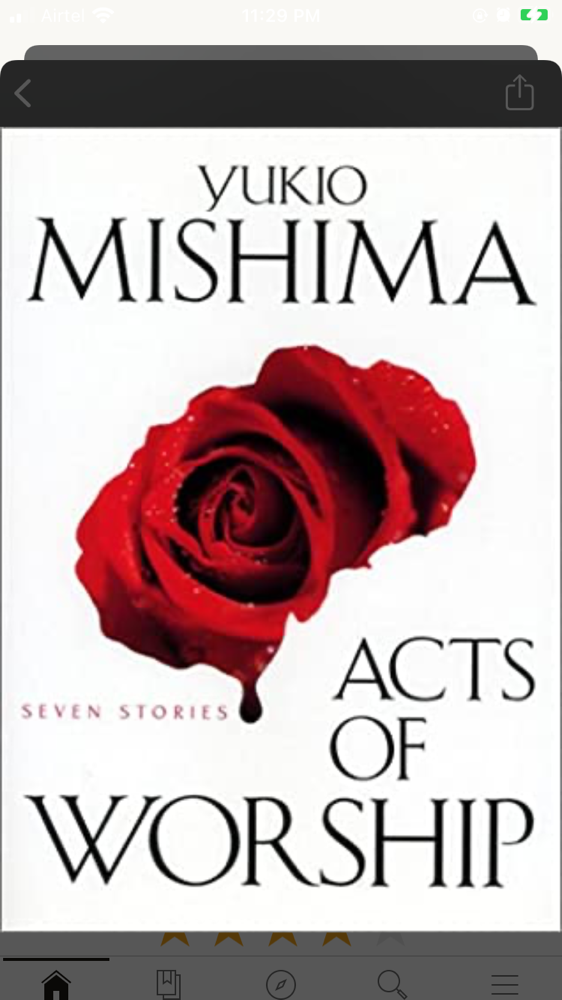
Binati Sheth
@Binati_Sheth · 5:00
Yukio Mishima’s Acts of Worship (TW)
And I am not an expert in mental health issues. I'm not an expert in theology. I'm not an expert in death. And I personally think people who make this choice, the choice to take their own life, are incredibly courageous and brave to do that. I mean, I can't even hold my hand over a flame, right? Imagine choosing to end it all. It takes so much courage
It raises a bunch of questions for me, and I suppose I don't really have a specific question for you, but I'm intrigued enough to potentially read this. Did you take away any sort of ideas of these kinds from reading the book? Maybe that's my question because I'm trying to figure out if I really want to delve into it with a vivid imagination. There are some things I don't necessarily want to read about, so I'm trepidatious? Is that the word I want?

Binati Sheth
@Binati_Sheth · 4:58
You picked up on something rightfully, which is that there is a cultural component to this. The cultural component, if I would explain it in maybe extremely reductive way, is that aestheticism is built into every facet of Japanese culture. Death is no exception to that. The way they package their gifts, the way they dress themselves, present themselves, the way they talk, the way they walk, the way they work, the way they deal with fat
Swell Team
@Swell · 0:15
Okay. Wow. Death is the thing that is being worshipped. I am going to have to mull that one over for a while. But this does shed some light. You know, in some ways that, well, death is inevitable, but an act of worship or sacrificing oneself to death, I e offering one's life sooner than would be inevitable would be the act of worship. Interesting. I'm going to need to ponder that one some more

Sreeja V
@Wordsmith · 1:42
So prana is the life force, the energy that gives us the enthusiasm to take on things, to get us through our days, to have a goal, to have a vision for ourselves. We stumble, we fall, we lose, we fail, but yet we pick ourselves up and move ahead. So that is what prana does. So anyway, I sort of just wanted to share this here. And once again, thank you so much for this review

Binati Sheth
@Binati_Sheth · 1:17
Definitely. Pranayam is a great example of strengthening the life force and why a lot of focus of Hindu, Vedic or not Hindu. I think Vedic philosophy was on these kinds of things like breathing exercises, aligning your body with your spirit and things like that. And I personally also enjoy Stoic philosophy in this regard, where they have the concepts of memento mori, which is, you're going to die, so might as well, you know, not trade it and meditate on it

